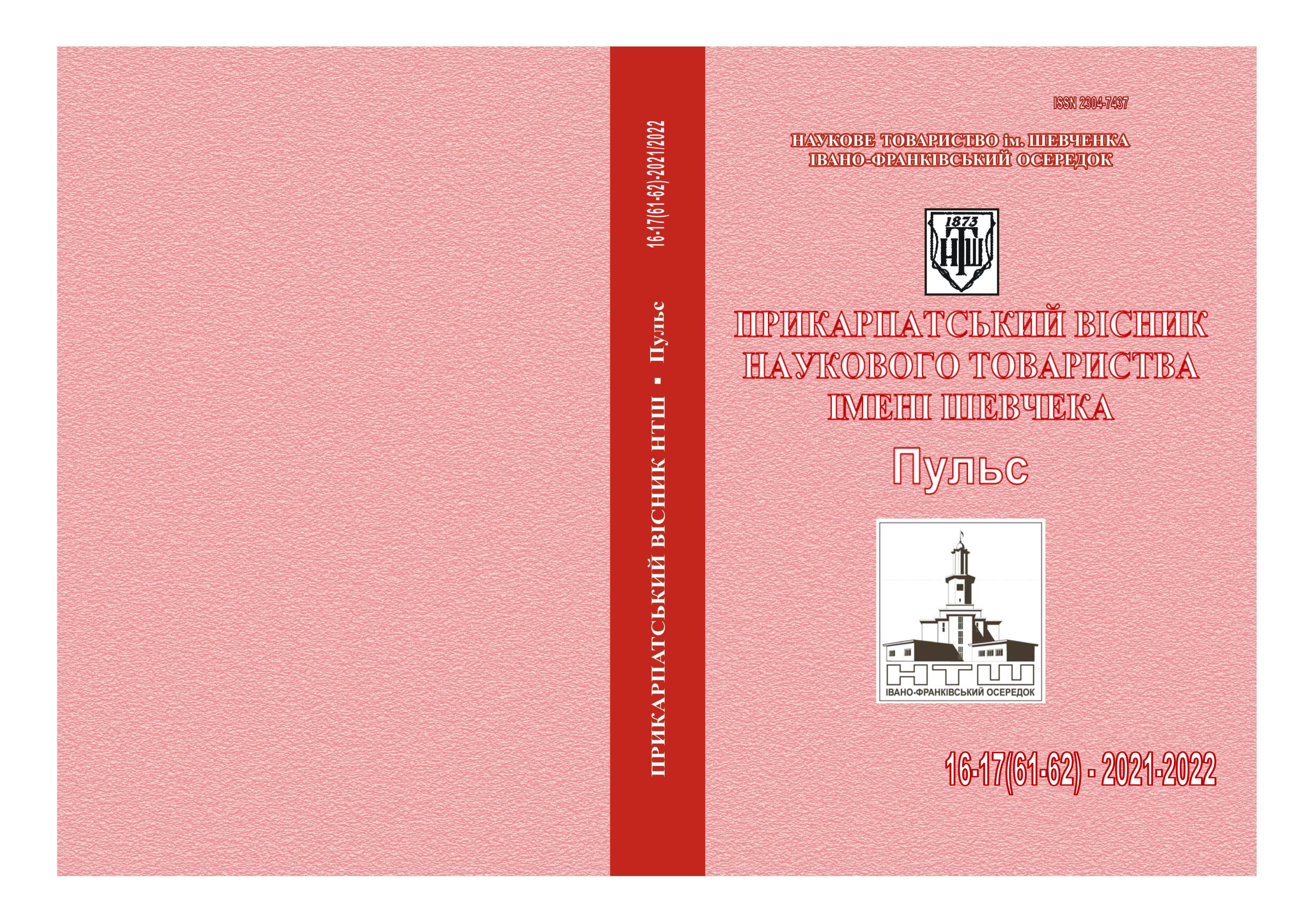ОСОБЛИВОСТІ ПРОВЕДЕННЯ ДИСТАНЦІЙНОГО НАВЧАННЯ НА КАФЕДРІ ОТОРИНОЛАРИНГОЛОГІЇ З КУРСОМ ХІРУРГІЇ ГОЛОВИ І ШИЇ
DOI:
https://doi.org/10.21802/2304-7437-2021-2022-16-17(61-62)-138-143Ключові слова:
дистанційне навчання, оториноларингологія.Анотація
Якісна освіта є запорукою майбутнього країни, важливою складовою її національної ідентичності та державного добробуту. В сучасних умовах ринку праці та особливості працевлаштування зростають вимоги до професійної компетентності випускників, що обумовлює якісно нові форми та методи вищої освіти, спрямовані на створення цілісної системи безперервної освіти та розширення сфери самостійної діяльності студента, які формують навички самоорганізації та самоосвіти [1,2].
Дистанційне навчання – це цілеспрямований процес взаємодії викладача та студента, що ґрунтується на використанні сучасних інформаційних і телекомунікаційних технологій, які дають змогу проводити навчання на відстані, що актуально в теперішніх умовах. [3,4,5,6]. Поява дистанційного навчання не є випадковим, це закономірний етап розвитку та адаптації освіти до сучасних умов [7,8]. Впровадження дистанційного навчання на кафедрі оториноларингології є невідкладною ланкою освіти у вищій медичній школі в сучасних умовах.
Оториноларингологія є клінічною дисципліною, тому вивчення матеріалу неможливо проводити в умовах дистанційного навчання тільки на основі тестів та усного опитування. Для формування у студентів мотивації до навчання, логічного послідовного мислення, вирішення складних клінічних завдань, вимагає від викладача високого професіоналізму та забезпечення заняття якісним ілюстративним матеріалом, а також використання таких сучасних ресурсів, як Школа Доказової Медицини, академія оториноларингології Євролор, Івано-Франківська школа отоларингології на яких представлено безліч відеоматеріалів клінічних випадків з реальними пацієнтами, коментарями щодо тактики обстеження, лікування, та у випадку хірургічного лікування, демонстрація всіх етапів оперативного лікування з операційного блоку.
Метою нашої роботи стало – покращити якість дистанційного навчання шляхом систематизації отриманих знань та професійних вмінь які базуються на принципах доказової медицини.
Посилання
Телемедицина в сучасному освітньому процесі / Є. В. Силкова // Trends in the development of modern scientific: abstracts of XXXI Interna-tional Scientific and Practical Conference, Vancouver, Canada, June 22–25, 2021. – Vancouver, 2021. – P. 348–351.
Al Shahrani, A.S. Development and evaluation of an evidence-based med-icine module in the undergraduate medical curriculum. BMC Med Educ, v.20, p.56, 2020.
Лісецька І.С. (2020). Дистанційна форма навчання студентів-медиків як виклик сьогодення. Сучасна педіатрія. Україна. 7(111): 81-86. doi 10.15574/SP.2020.111.81.
Міністерство освіти і науки України. (2020). Концепція розвитку дистанційної освіти в Україні 2020 року. Постанова МОН України від 20.12.2000 року. URL:Error! Hyperlink reference not valid..
Кущ О.Г., Омельянчик В.М., Бессараб Г.І. (2017). Дистанційне навчання в системі медичної освіти (перший досвід кафедри нормальної фізіології ЗДМУ). Медична освіта. 4: 85—89.
Бурмас Н.І., Бойко Л.А. (2019). Система дистанційної форми навчання на кафедрі загальної хімії. Медична освіта. 2:1518. https://doi.org/10.11603/me.2414-5998.2019.2.10338
Галій Л.В., Шульга Л.І., Якущенко В.А., Нартов П.В., Бур’ян К.О., Баган СО. (2019). Впровадження дистанційної форми навчання в систему післядипломної освіти: проблемні питання сьогодення. Проблеми безперервної медичної освіти та науки. 3 (35): 14-20
Вірстюк Н.Г., Оринчак М.А., Човганюк О.С. та ін. (2020). Дистанційне навчання з дисципліни внутрішня медицина для студентів-медиків в умовах пандемії COVID-19. Актуальні питання підвищення якості освітнього процесу: матеріали науково-методичної конференції з між-народною участю, м. Івано-Франківськ, 18 вересня 2020 року. Івано-Франківськ: Івано-Франківський національний медичний університет.

